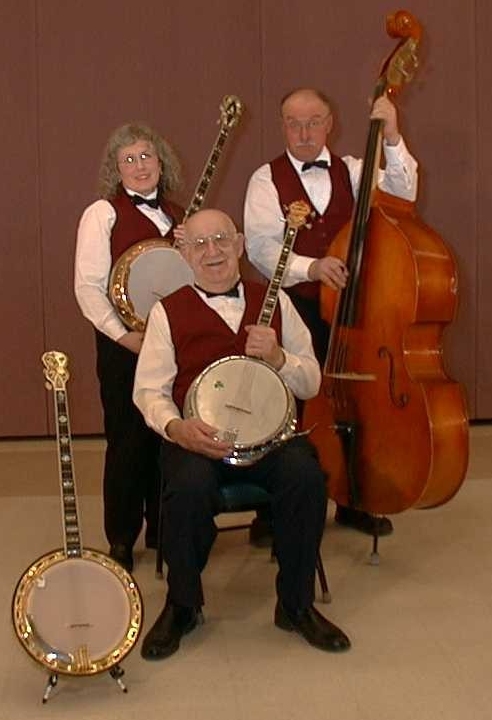
Les “Cabbage” Brown
1914 - 2002
by Dave Brown
Leslie Gordon Brown was born on Dec. 3, 1914 in Seattle, WA., the eldest of nine children. Beloved husband of Bessie (Betty) Irene, he was married to her for 61 years. Les was the father of three sons....Allan G. Brown, Leslie Gordon (who died in infancy), David R. Brown, and had one daughter, Betty Diane Brown. He was the grandfather of six, great grandfather of seven, and also had two step-grandsons. As a child, Les lived seven years in South Park. Then the family moved to the small settlement of Quatsino, on the northern tip of Vancouver Island, where they lived from 1923-1930. There he had the opportunity to observe the everyday lifestyle of the last of the native people, including their cultural and religious practices, and fascinated the family with his stories about them.
The Browns returned to Seattle in 1930 in the midst of the Great Depression. At the age of 15 Les worked to help support the family. All through his life he would tell about the time his father bribed the boss at the Rock Island Dam, with a bottle of moonshine to get Les a job. As a teenager, just arriving from Quatsino, he didn't understand what the Depression was all about and was amazed to see grown men openly crying when they were turned away at the job site. Thousands of them had stood in lines for hours, in snow and ice, on the slim chance of getting work. He never forgot that sight as long as he lived.
The family moved to Duvall, where he attended school and worked at odd jobs in the farming community for three years. While there he made friends with a boy about his age named Dick Rozelle. Dick was a talented musician, and it was from his teaching that Les first learned to play the banjo. Later, in Seattle, he helped his father in the Dixon Moving Co., a transfer business that, during prohibition, sometimes even moved bootleggers' operations, occasionally tipped-off by the cops themselves.
In 1934 Les joined the Boilermakers' Union Local 104 in Seattle. His first job was applying pitch to the inside of Rainier Brewery beer tanks. Next he worked at Lake Union Drydock as a helper. Work was scarce, so Les went to Oakland CA where he learned to be a riveter. He worked on the "Fir Class" buoy-tenders, where, while getting a hair cut, he picked up the nick-name "Cabbagehead", which stuck with him for the rest of his life.
Les returned to Seattle in 1938 to drive rivets at Todd Shipyard. He enjoyed going to dances, and began courting Bessie (Betty) Hansen, whom he married in 1940. During WWII Les worked as a riveter at Todd Shipyard, and after the war, worked as a longshoreman and did commercial fishing. Then he went back to work at Todd Shipyard and also in "the field" building tanks for water, grain, molasses, oil, etc. He built the first welded water-tank in Seattle. In 1958 it was back to work at the shipyard. In the early seventies he returned to Lake Union Drydock Co. and also worked in the field. He retired in 1977....a hard-working, skilled leader, who always "called his own shots"...one of the last of "the Old Breed"....Boilermakers.
After his retirement Les played in, and traveled with, the Nile Oriental band....was a member of the Seattle Banjo Club (joining in 1974) and went to New York with them in 1980. He and Betty followed the Uptown Lowdown Jazz Band that their son Dave played in, as well as going to see daughter Diane perform with folk dancing groups, and son Al's athletic competitions with the Police Olympics. He was a proud member of the Southgate Masonic lodge since 1964. Les Brown enjoyed his family, and many friends, especially those in the Seattle Banjo Club. Members who saw him, at the Monday night practice, Jan. 14, 2002, the last he would attend, will cherish the memory of his smiling face and sense of humor. Three days later the unforgettable Les (Cabbage) Brown died peacefully in his sleep. His stories, laughter, baritone voice, and banjo playing live on in our hearts. As they say in the shipyards, "He gave it a good run."